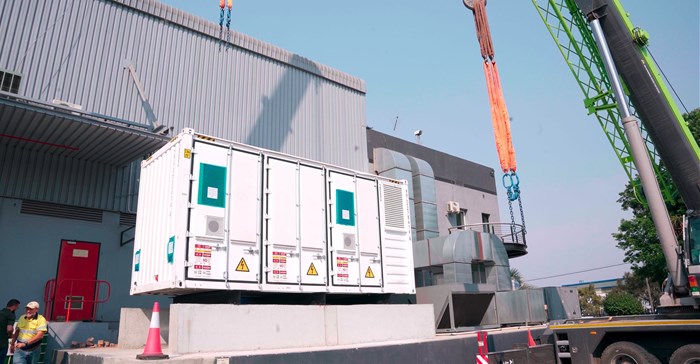
Top stories






More news

Marketing & Media
Ads are coming to AI. Does that really have to be such a bad thing?















Among those leading the charge is ICT equipment distributor Rectron. In a bid to efficiently manage their power supply amidst the ongoing crisis, Rectron has recently welcomed the arrival of Africa’s first 1MW battery. This marks a significant milestone in the continent’s journey towards energy resilience.
To ensure smooth business operations, Rectron will be installing the continent’s first Huawei FusionSolar’s LUNA2000-1.0MWH energy storage solution at its head offices in Midrand and hopes that this project will serve as an example for other businesses to emulate.
The escalating cost of diesel, combined with frequent and unpredictable power outages, have forced businesses throughout South Africa to consider renewable energy as their primary source of power.
Currently, local companies are forced to run expensive generators to power their operations. Rectron, for example, uses a 600kVA generator to power a 24-hour data centre and security system resulting in additional diesel costs of around R120k per month on average, depending on the level of loadshedding.
In July electricity minister Kgosientsho Ramokgopa, announced the government’s support for alternative power solutions for businesses, illustrating their commitment to the expansion of the transmission grid in South Africa. This was supported by the announcement of initiatives like the Bounce Back Loan programme for SMEs.
“Finding a sustainable and progressive power solution that enabled us to account for our current power needs and save costs in the long-term has been a top priority for our business for some time,” explains Spencer Chen, CEO at Rectron.
“Being a pioneer in this field, we have always been willing to invest in South African businesses and this acquisition is proof of that. Hopefully, this can serve as a visible case study for other companies considering similar solutions,” says Chen.
In June, Chen visited the Intersolar exhibition in Germany, where it became clear that Huawei FusionSolar’s 1MW energy storage system (ESS) was the comprehensive solution the company had been searching for.
“The LUNA2000-1.0MWH1H1 energy storage solution was the perfect fit for Rectron. It enables us to maintain seamless operations at our Midrand branch and run our data centre and IT systems for all five of our branches without any downtime. This financial investment in the business will enhance operational efficiency and reduce unnecessary overhead costs,” he says.
Huawei has a strong presence in the IT infrastructure and smart device sectors, as well as energy storage solutions. FusionSolar, Huawei’s solar business, has developed the Smart String ESS which integrates digital technology and string concept into the ESS, utilising power electronics technologies to address the inconsistency and uncertainty of lithium batteries.
It offers innovative features such as pack-level optimisation and rack-level management, which can increase overall energy efficiency and reduce the LCOE by over 15% compared to traditional solutions. A four-layer safety design ensures cell safety, electrical safety, mechanical safety, and system safety.
Fire safety is a key aspect of FusionSolar products. The LUNA2000-1.0MWH includes cell level monitoring to prevent thermal runaway in real time. It provides two levels of physical isolation at a system level and two levels of proactive shutdown by monitoring the software at a battery pack level.
Huawei has collaborated with Rectron to bring this solution to the South African market. This solution is expected to support the continuity of organizations’ operations while allowing the economy time to develop a diverse alternative energy pool.
The solar project has been in the works for several months. With the arrival of the 1MW battery, work on the supporting system components will now commence.
Rectron anticipates that the solution will be operational by the end of 2023. A PV plant with a capacity of 416kW solar power will be installed and is projected to generate approximately 600,000kWh of power annually. The company expects an ROI of 4-5 years, depending on loadshedding severity.
Maxim Business Solutions (MBS) will manage the project progress and installation.
“MBS is dedicated to providing sustainable business solutions for our customers and partners alike. In a strategic move towards growth, our company has forged a partnership with Rectron, as this decision aligns with our business strategy and offerings,” says company CEO Orf Oosthuizen.
Rectron’s power needs will be prioritised with battery and solar, followed by the grid and as a last resort, a generator. In its pursuit of a more sustainable operation and its goal to achieve carbon neutrality, Rectron aims to reduce its yearly carbon footprint by about 2,7kg CO2 per litre of diesel burned.